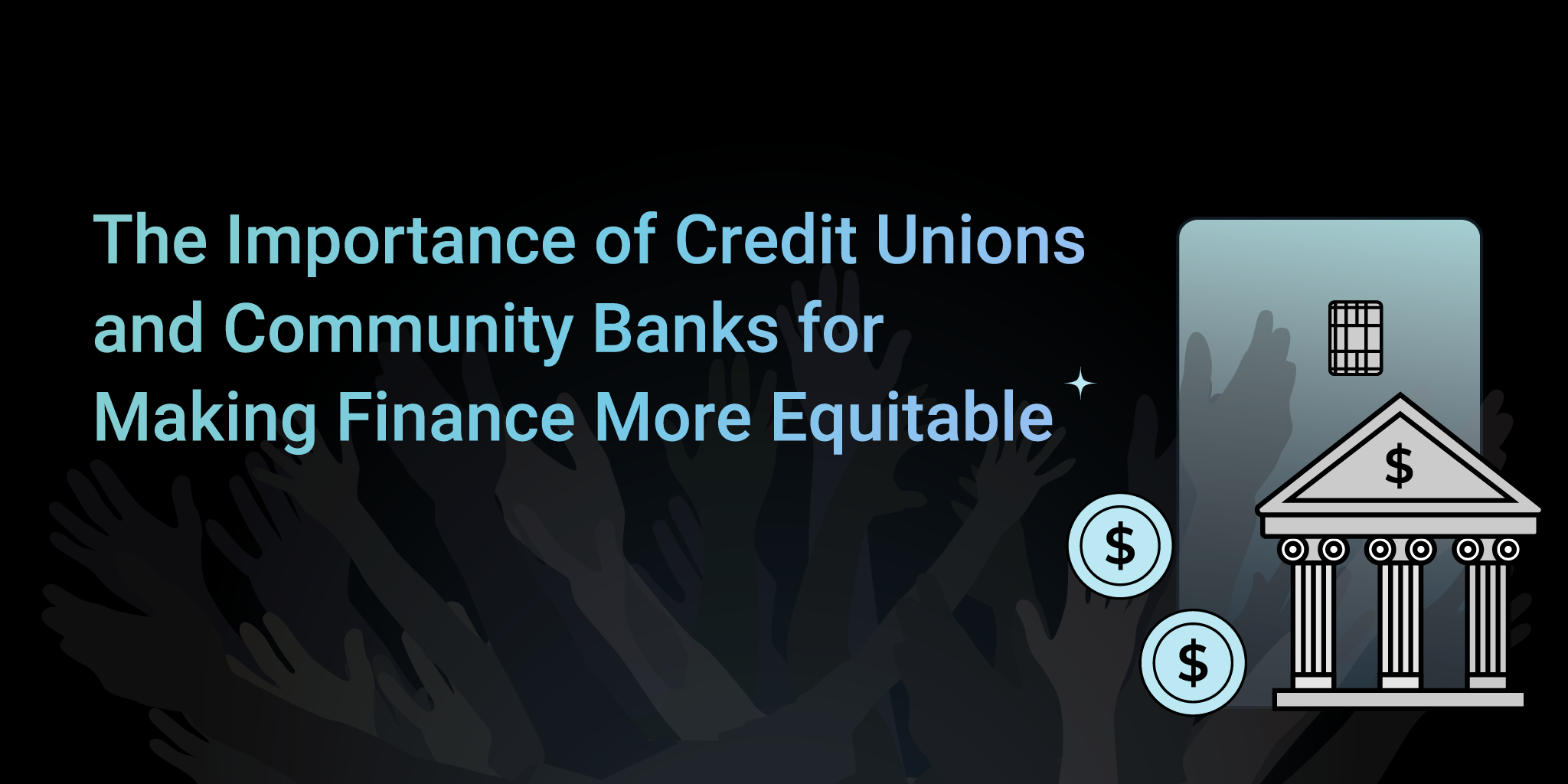The Importance of Credit Unions and Community Banks for Making Finance More Equitable
Community banks and credit unions have long been key to making finance more equitable and increasing the number of people who have access to financial services. Though discrimination in financial services has been illegal for decades thanks to laws like the Equal Credit Opportunity Act and the Fair Housing Act, the legacy of over a century of discriminatory practices means that access to banks and credit remains uneven across communities and income levels, with minorities being 2-3 times more likely to be unbanked or underbanked according to a 2019 report by the Federal Reserve.
The lack of access to banks means these communities are more reliant on alternative financial service providers such as payday lenders, pawn shops, and “buy here pay here” car lots. These businesses offer decidedly less favorable terms and conditions than traditional lenders, limiting the spending and saving ability of their users and restricting their potential for upward mobility. These challenges apply not just to individuals in these communities but also to small businesses that may be unable to grow and develop due to a lack of access to the necessary financing.
Without community banks and credit unions, the number of people dependent on alternative lenders would be substantially higher, as would the associated economic disparities. Before the passage of anti-discrimination laws, community banks were the only institutions that would offer banking services to minorities – and even among these, some were run by unscrupulous individuals who wanted to take advantage of people in need instead of helping them. Communities that did not have their own bank would often be left without any options whatsoever, leaving them to struggle on their own.
In addition to offering community-oriented banking and lending services, community banks also serve as sources of financial and business education for their clients in communities. This knowledge helps community businesses succeed and individuals build wealth while making both less likely to be taken advantage of by alternative lenders.
Further Reducing Inequity Through Digitization
Though discrimination has been illegal for 50 years and the digitization of financial services means a physical branch is not as important as it used to be for access to a bank, community banks still have a huge role to play in further reducing financial inequity. Chief among these is that larger banks are often unable (or unwilling) to offer the financial products these communities may need. One example is small-dollar short-term loans.
While most banks offer some kind of personal loan product, they often require minimum loan amounts of several thousand and minimum terms of 12 months, plus credit and income requirements. An underbanked person with a limited credit history who only needs $500 is unlikely to get approved and may be forced to use a payday lender, whose terms will be equal to an APR of several hundred (!) percent. This is a gap that community banks can (and do) fill, with institutions such as OneUnited Bank offering short-term loans at a significantly lower cost than a payday lender.
Thanks to digitization, community banks can expand their “community” beyond their physical footprint and offer their tailored products to more people who need them, helping reduce reliance on alternative financial service providers. As their adoption of cutting-edge technology such as AI grows, they will be able to serve their communities better and expand their reach further by extending credit to currently ineligible customers or offering even more favorable rates thanks to improved risk management capabilities. This will further reduce the number of unbanked and underbanked people and bring the goal of financial equality closer to fruition.

